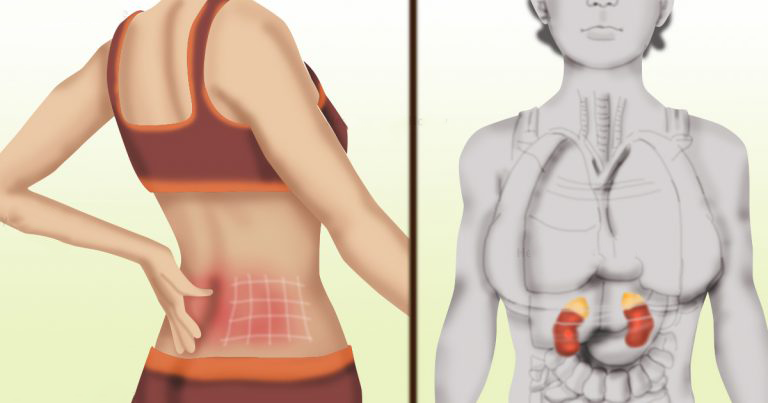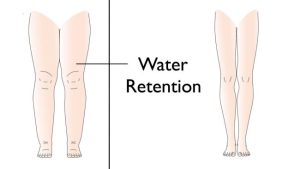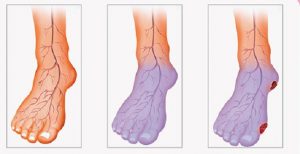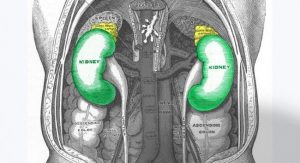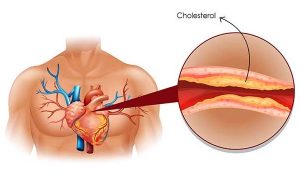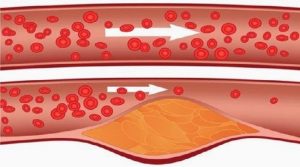Are you struggling to lose weight and maintain a healthy diet? You may have a toxic fatty acid that blocks weight loss.
Here's how a simple “Ice Hack” speed up my fat loss and helped me restore my health, watch now.

Adrenal fatigue occurs when adrenal glands struggle to cope with stress and a very busy schedule. It can cause feelings of dullness, fatigue, and even a feeling of burning out.
Your physician will not diagnose the condition however we’ll reveal the symptoms and what you need to change to manage them.
If one of you is in the four phases of exhaustion, adrenal insufficiency may be noticed and be diagnosed by a medical professional. Thus, it is important to take care of the symptoms promptly and avoid aggravating problems.
Stress can lead to higher cortisol levels and weakening body functions since the adrenal glands are unable to handle the load.
Here are the following signs that suggest you have adrenal fatigue:
1. Poor Digestion
Stress doesn’t allow your body to digest food properly, and it hinders your absorption of nutrition. In this instance, your digestion and metabolism suffer and you may be suffering from bloating, indigestion diarrhea, constipation, and weight growth.
You must eat a healthy diet, drink plenty of water, consume mineral supplements and probiotics regularly, and make time to take time to enjoy your meals.
2. Insomnia
Each night, it is recommended to be sleeping for at minimum 8 hours uninterrupted, to allow your body to refresh, reset, and recuperate. This will help you awake refreshed and revived.
Additionally, do not sacrifice your sleep to work harder in case it throws your balance and makes it difficult to get to sleep.
Try to get asleep by 10:30 pm. Even in the event that you’re unable to fall asleep Stay in the dark to allow your body to release the hormone known as melatonin. It is a sleep hormone. Warm baths, relaxation techniques, and yoga help to relax the body and mind, and aid in helping to fall asleep.
3. Anxiety or Depression
The stress from deadlines, and having a hectic schedule can cause problems, mood swings, and a deterioration in cognitive functioning. Depression and anxiety are directly connected to stress, so ensure that you are able to reduce it and control it to protect your well-being.
4. Stiffness and pain
When your body isn’t fully recharged from stress, you could feel stiffness and pain in your neck, and also tension in your jaw, back, or neck. Change your habits of sleeping, and also practice yoga and stretching exercises.
Additionally, warm baths provide powerful anti-inflammatory benefits – because magnesium’s natural properties relax muscles, and the crystal blend cleanses and rebalances the body.
5. Feeling Overwhelmed By Life
There are times when things could be more efficient and easier however, you shouldn’t put too much pressure on yourself. It is important to set aside the time for yourself and simply work towards achieving your goals regardless of the time and effort required.
Thus, you should incorporate self-care routines into your day Make sure to allow your body to heal and function optimally.
6. Exhaustion After Working Out
Exercise can boost your energy levels But physical stress can cause adrenal fatigue as it could have adverse consequences on the body. Sometimes, you may need to consider an exercise that is gentle, such as walking, or yoga.
If you’re looking to shed some weight, make sure that you’re aware of the fact that 80percent of the benefits will come from a healthy diet.
7. Wacky hormones
The thyroid gland may be damaged in the second stage of adrenal fatigue. During this stage, it is possible to begin experiencing symptoms of hypothyroidism (poor circulation as well as fatigue weight growth, dry hair, and even skin).
In the event of an imbalance in the adrenal glands and stress levels, hormonal precursors can be directed to cortisol production.
Long-term stress can make it more difficult to manage PMS symptoms or cause periodic loss of the cycle. So, ensure you consume healthy food drink enough fluids, rest enough, stay away from caffeine, and utilize adaptogenic herbs.
Source: valentinbosioc.com

